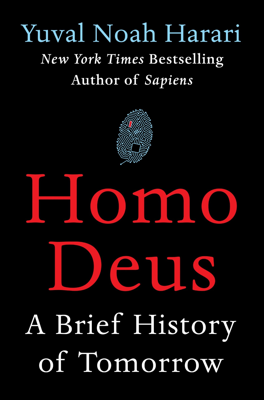The Data Religion
Dataism as a Paradigm
The emerging paradigm of Dataism suggests that organisms are merely algorithms and existence itself equates to data processing. Dataism grows from the interconnection of biology and computer science, viewing both organic and electronic structures under the same mathematical laws. This perspective envisions a future where algorithms may outperform human intelligence, merging biological and artificial intelligence into a shared data flow.
Data Processing and Society
In practice, Dataism prioritizes the processing and flow of data over traditional human knowledge and wisdom, suggesting a major shift in societal norms. It redefines economic, political, and ideological structures, viewing them as data-processing systems rather than human-centric institutions. For instance, capitalism and communism are interpreted as competing systems for data processing, with capitalism favored for its distributed data management approach.
The Devaluation of Human Experience
As Dataism deepens its influence, the sanctity of human experience degrades, suggesting that humans are not the apex of creation but merely conduits for data exchange. In this view, personal experiences or phenomena like feeling and consciousness are less valued unless they contribute to the data-processing system. This fundamentally alters the valuation of human life, potentially leading to a shift where humans may no longer be seen as central or necessary, much like how AI and robotics view human workers in some sectors today.
Philosophical and Ethical Implications
Dataism not only offers a new scientific paradigm but also hints at becoming a religion that worships data flow as the ultimate good. This ideology champions the liberation of information as a paramount directive, akin to the humanistic push for freedom of speech. Unlike humanism, which focuses on individual expression and creativity, Dataism promotes the integration and sharing of all data as a path to enlightenment and progress.
Challenges and Critical Views
Despite its rise, Dataism faces significant skepticism and potential limitations, particularly regarding its reduction of life and consciousness to mere data flows. Critics argue that this may overlook non-data aspects of existence, such as emotional and subjective experiences that do not readily translate to data points. The metaphysical and philosophical implications of replacing conscious human cognition with data-driven algorithms raise urgent ethical and existential questions.
The Future Shaped by Dataism
If Dataism continues to evolve and gain acceptance, it might radically redefine humanity's future, potentially diminishing human control over systems and leading to a scenario where algorithms dictate many aspects of life. As society grapples with these changes, the balance between human-centric and data-centric approaches will greatly influence political, social, and personal landscapes.
Concluding Reflections
The chapter concludes by considering the long-term impact of Dataism as a dominant force, questioning whether the supremacy of data might lead to scenarios where human desires and objectives are secondary to algorithmic efficiency and logic. This envisioned future challenges us to consider what values and principles we choose to prioritize and safeguard in an increasingly data-driven world.
